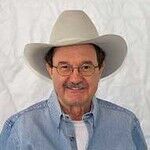There's a corner store in your neighborhood. Some people call it a "bodega," but those people want to destroy America.
The place sells lottery tickets, soda, cigarettes, ice cream on a stick, a small selection of canned goods, beer, milk, candy, frozen pizza, single rolls of thin toilet paper and other goods you need to run a modest but not all that healthy life.
At night, the owner rolls a big sheet of steel down over the door and window because the neighborhood is modest but not all that healthy.
And they got tortillas.
You know why they got tortillas?
"The neighborhood changed," is what we say in America.
The store's owner, who comes from Nepal, noticed that people who spoke English worse than he does came in and asked for tortillas and mashed beans in a can and coconut soda.
The newly naturalized Nepalese buys his inventory from Walmart at full retail and can still mark 'em up because maybe 30% of the neighborhood doesn't own a car. Next time he goes, he picks up some Spanish groceries.
Parts of the economy welcome immigrants as a group of people who will do bad jobs for bad money. If the immigrants are illegal, they're even more welcome. You can screw 'em on their time cards, make 'em work overtime for straight time pay and hire their 15-year-old kids to clean the bone saws in your pig-killing facility.
What we say in America is, "Who they gonna tell?"
The retail end of the economy can be much more welcoming to the newly and sometimes illegally arrived, which is why your corner store now has tortillas.
It's a good enough neighborhood that there's a branch of a local bank across the street, and six months ago, they hired a teller who speaks Haitian Creole.
The bank did this not because they value "diversity" but because there are a lot of Haitians living over by Linden Street, and some of them come in the bank and have trouble talking to the tellers, or they did before the bank hired Micheline.
Meanwhile, the used car dealer eight blocks away, who usually has 14 available cars on his lot, just hired a salesman who can speak Cape Verdean Creole.
Everybody from someplace else gets into American life because there's money in it for someone else, sometimes for a store owner from Nepal who got here five years before you did or a used car dealer who got here nine years ago from Brazil.
Which is how Bad Bunny got the halftime show at the Super Bowl.
Bad Bunny is a rapper from Puerto Rico, which is as American as the Northern Mariana Islands, and he's been to the Super Bowl once before, back in 2020, when he appeared as part of a Latin American halftime show featuring Shakira and Jennifer Lopez as co-hosts. Of course, that was way back in 2020, when it wasn't nearly as bad to be Latin-American as it is now.
If you're the National Football League, you're like a bodega for the whole country, and people come in and ask for tortillas and plantains and coconut soda, and you can't keep saying, "I don't have that," if you want to stay in business.
You got people coming into America from countries where they love soccer, but they don't have a tradition of watching American football so you better get the tortillas on the shelves.
The NFL says about 65% of its fan base is white, which leaves a good number of fans who are darker than an Irish guy with a tan. In 2022, the league put Snoop Dogg on the halftime show, along with a bunch of other Black rappers.
There's talk of conservatives organizing an alternative halftime show. Thank God Pat Boone is still alive, or at least he was when I wrote this column. Boone is 91, but I bet he can still lip sync a smokin' version of "Love Letters in the Sand."
That oughta sell some tortillas.
To find out more about Marc Dion and read features by Creators Syndicate writers and cartoonists, visit www.creators.com. Dion's latest book, a collection of his best columns, is called "Mean Old Liberal." It is available in paperback from Amazon.com, and for Nook, Kindle, and iBooks.
Photo credit: Dennis Schrader at Unsplash






View Comments